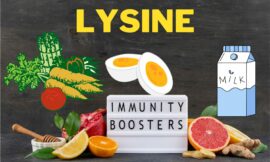Last updated on May 13th, 2023 at 08:44 am
Vitamins are an essential part of our daily life. There are several questions in our minds. Why do we need vitamins? Are they naturally available? How can we take these vitamins? Vitamins are essential for energy production and play a vital role in maintaining our health. Some vitamins are water-soluble (niacin, biotin, vitamin C, vitamin B12, vitamin B for the skin as well as for acne treatment, reduces dark spots, improve skin elasticity, and provides protection against UV damage.
6) and some are fat-soluble (vitamins A, D, E, and K). Vitamin E is a fat-soluble (vitamins that are dissolved in fats and oils) vitamin that is naturally found in seeds, vegetable oils, nuts, eggs, sunflower, soybean oil, pumpkins, and green vegetables. In this article, we will discuss Vitamin E and its benefits. Vitamin E is also an antioxidant. It is good for the skin and eyes and can boost the immune system.
What is Vitamin E?
Vitamin E is an essential nutrient that plays a crucial role in maintaining our health. As an antioxidant, it helps prevent the production of harmful free radicals in our bodies that may cause cancer, vision loss, and other chronic diseases. Additionally, vitamin E prevents blood clotting in the arteries and boosts immune response. As a nutrient vitamin E has to be obtained from diet and supplements as our body does not produce it.
Fat-soluble vitamins like Vitamin E must be consumed with dietary fats to ensure optimal absorption. Once absorbed in the small intestine, the liver converts alpha-tocopherol into lipoproteins to be stored and used when needed. Vitamin E promotes better health for the brain, eyes, and skin by strengthening cells and preventing cell damage due to oxidation.
Combined with soybean oil, vitamin E improves the absorption of astaxanthin, a carotenoid that can inhibit cytochrome c release and prevent mitochondria-mediated apoptotic death of cells. Vitamin E also contains fatty acids like Omega-3 which reduce inflammation and Omega-6 which improve heart health.
Vitamin E has eight fat-soluble chemical constituents, which are:
- alpha-tocopherol*
- beta-tocopherol
- gamma-tocopherol
- delta-tocopherol
- alpha-tocotrienol
- beta-tocotrienol
- gamma-tocotrienol
- delta-tocotrienol
*Most bioavailable to humans.
Vitamin E-rich food Sources:
On average we eat about 8-10 grams of vitamin E every day which is lower than the RDA, to get an adequate amount of vitamin E in our diet we must include foods that are rich in vitamin E in our diet.
Nuts and Seeds
- Sunflower seeds
- Almonds
- Hazelnuts
- Pine nuts
Leafy Green Vegetables
- Spinach (3.7 mg per cup)
- Asparagus (1.7 mg per cup, cooked)
Vegetable Oils
- Olive oil (1.9 mg per tablespoon)
- Wheat germ oil (21.8 mg per tablespoon)
Fruits
- Avocados
- Butternut squash
- Kiwi fruit
- Mango
- Tomatoes (0.7 mg per cup)
- Pumpkin (2.6 mg per cup, cooked)
Sea-Foods
- Trout
- Shrimp (1.9 mg per 3-ounce serving)
Other Common Sources
- Peanut butter (2.9 mg per 2 tablespoons)
- Red bell peppers (1.9 mg per cup)
Benefits of Vitamin E:
Some of the vitamin E benefits are:
Cell protection and Skin health
Vitamin E possesses antioxidant properties that can protect our body and skin from cell damage caused by lipid hydroperoxyl radicals, which are produced by a reaction between unsaturated fatty acids and reactive oxygen species. High numbers of Hydroperoxyl radicals may lead to the production of more free radicals, which may cause several health issues. Vitamin E prevents and reduces the harmful effects of such free radicals, which are known to cause skin cancer, cell damage, and aging.
Supports immune system
Vitamin E stimulates the bone marrow to increase the production of WBC which may increase the number of T-cells in the body and protect us against infections and diseases such as cancer and other bacterial infections. Vitamin E also strengthens T cells and ensures that it functions properly which is important for immunity, cell health, brain function, and vision.
Additionally, Vitamin E activates other immune cells such as cytotoxic T cells and helper T cells further boosting the immune response against various diseases.
Can increase red blood cells
Vitamin E can assist in the production of red blood cells, which are responsible for carrying oxygen throughout the body. It also can help prevent premature cell death of RBCs which is extremely important as a deficiency in red blood cells can lead to anemia and leukemia. Additionally, Vitamin E helps in wound healing and has been found to be helpful in reducing the recovery time in trauma patients. It works along with Vitamin K to aid in blood clotting and stops excessive bleeding and blood loss, in internal injuries.
Improve kidney function
Vitamin E as an antioxidant prevents oxidative damage to the kidneys, by preventing free radicals from causing cell damage.
Vitamin E also protects kidney function in diabetes patients as high blood sugar levels can adversely affect kidney function. Studies have shown that vitamin E can help reduce kidney damage caused by high blood sugar levels.
Additionally, The anti-inflammatory and vasodilatory effect of vitamin E on blood pressure helps prevent and positively control hypertension which is one of the major causes of kidney damage.
Promote healthy eyes
The antioxidant properties of vitamin E can help promote healthy eyes by neutralizing free radicals such as superoxide anion, hydroxyl ion, hydroperoxyl, lipid peroxyl, singlet oxygen ((1O2)), and hydrogen peroxide. These free radicals may cause cell damage which may lead to the development of cataracts, vision impairment, and even vision loss.
Can prevent coronary heart disease
According to an article titled “Vitamin E: The enigmatic one!” published in the Journal of Lipid Research, vitamin E supplements have been shown to be cardioprotective for individuals facing high levels of oxidative stress and those with type 2 diabetes, as well as patients undergoing hemodialysis to purify their blood. This suggests that vitamin E may provide benefits for those with heart-related issues.
Alzheimer’s disease: The antioxidant property of vitamin E acts as a neuroprotective that may aid in the prevention of neurodegenerative diseases. In some research studies, high-dose vitamin E supplements have been shown to be beneficial in reducing the severity of Alzheimer’s.
Vitamin E increases and facilitates the functions of several enzymes such as Kinase C and glutathione which are involved in several processes such as synaptic plasticity, learning, memory, and regulating oxidative stressors. These functions of vitamin E have been shown to be beneficial against the development of Alzheimer’s.
Liver disease: Some research suggests that vitamin E might also be useful in improving symptoms of nonalcoholic fatty liver disease (NAFLD). NAFLD can be caused by several factors including obesity and which may result in cirrhosis (liver failure) in later stages.
Safety and Possible Side Effects:
If you are taking an appropriate dose of vitamin E orally it is generally safe but in excess, it can cause:
- Headache
- Diarrhea
- Nausea (a symptom of vomiting)
- Intestinal cramps
- Weakness
- Fatigue
- Blurred vision in eyes
- Skin rashes
- Gonadal dysfunction (a condition that causes menstrual problems in females and disorders of the testes in males)
- Increased concentration of creatinine (body waste product) in the urine (creatinuria)
Dosage of Vitamin E For Men & Women:
Doses of vitamin E may vary according to age. You can take vitamin E as:
| Age | Males | Females | Pregnancy | Location |
|---|---|---|---|---|
| 0-6 Months | 4 MG | 4 MG | ||
| 7-12 Months | 5 MG | 5 MG | ||
| 1-3 Years | 6 MG | 6 MG | ||
| 4-8 Years | 7 MG | 7 MG | ||
| 9-13 Years | 11 MG | 11 MG | ||
| 14+ Years | 15 MG | 15 MG | 15 MG | 19 MG |
What we conclude:
Vitamin E has skin protective properties. As an antioxidant, it can prevent the production of toxins like free radicals which are produced in high numbers due to pollution and other lifestyle habits. The antioxidant property of vitamin E can prevent heart disease and has cardioprotective properties. It can treat diarrhea, fatigue, blurred vision, nausea, liver, and Alzheimer’s disease. It may be useful for bone and joint health. Vitamin E is naturally available in vegetables, soya, and leafy green vegetables, and there are also a variety of supplements, tablets, and capsules available for vitamin E which are useful.



